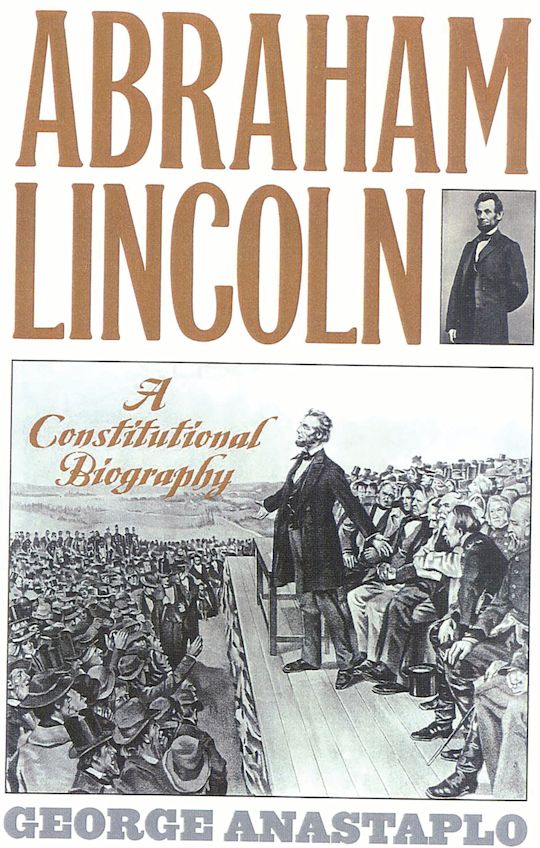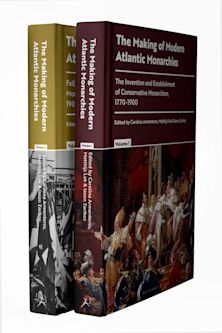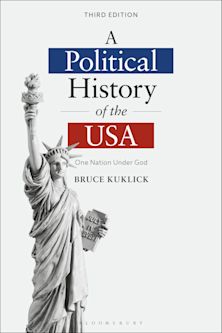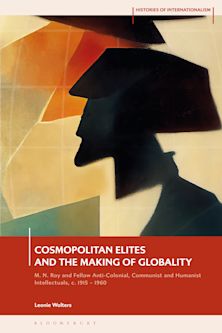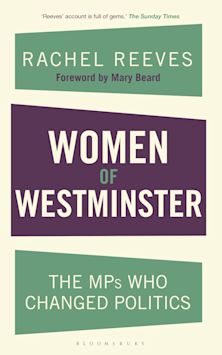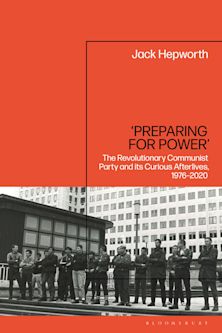- Home
- ACADEMIC
- History
- Political History
- Abraham Lincoln
For information on how we process your data, read our Privacy Policy
Thank you. We will email you when this book is available to order
Buy from Bloomsbury eTextBooks
You are now leaving the Bloomsbury Publishing website. Your eBook purchase will be with our partner https://www.vitalsource.com.
Your credit card statement will show this purchase originating from VitalSource Technologies. They will also provide any technical assistance you might require.
You must sign in to add this item to your wishlist. Please sign in or create an account
Description
Renowned scholar George Anastaplo describes a side of Abraham Lincoln that previous biographers have overlooked: the development and legacy of his legal and constitutional thought.
Table of Contents
Chapter 2 The Declaration of Independence: On Rights and Duties
Chapter 3 The Northwest Ordinance
Chapter 4 Slavery and the Federal Convention of 1787
Chapter 5 The Common Law and the Organization of Government
Chapter 6 Alexis de Tocqueville on Democracy in America
Chapter 7 John C. Calhoun and Slavery
Chapter 8 Southern Illinois' Abraham Lincoln
Chapter 9 The Poetry of Abraham Lincoln
Chapter 10 The "House Divided" Speech
Chapter 11 The Lincoln-Douglas Debates
Chapter 12 The First Inaugural Address
Chapter 13 The Fourth of July Message to Congress
Chapter 14 The Emancipation Proclamation
Chapter 15 The Gettysburg Address
Chapter 16 The Second Inaugural Address
Chapter 17 Abraham Lincoln's Legacies
Product details
| Published | 01 Sep 1999 |
|---|---|
| Format | Ebook (Epub & Mobi) |
| Edition | 1st |
| Extent | 384 |
| ISBN | 9780742569256 |
| Imprint | Rowman & Littlefield Publishers |
| Publisher | Bloomsbury Publishing |
About the contributors
Reviews
-
Lincoln grappled with major constitutional issues. It is fascinating to see constitutional scholar George Anastaplo grapple with Lincoln grappling with constitutional issues.
Paul Simon, director of the Public Policy Institute, Southern Illinois University and former U.S. Senator.
-
This beautifully written book offers the considered judgments of a penetrating, judicious, and temperate mind concerning the American constitutional order and its most far-sighted and deeply prudential defender and representative, Abraham Lincoln. Anastaplo's lucid and perceptive essays, combining philosophical insight and historical sensitivity to the exigencies of political context, encourage in the reader both an awareness of and a disposition toward qualities of moral excellence required in a well ordered republican polity.
Herman Belz, University of Maryland
-
The writings of George Anastaplo have as one of their main purposes the attempt to teach Americans how to maintain their freedom with justice and moderation. These essays on Lincoln's constitutional thought are among the finest lessons one can have on the art of republican statesmanship.
Leo Paul S. de Alvarez, University of Dallas
-
The finest scholarly writing on Lincoln's words that I know. My feeling is that Anastaplo must have sat at Lincoln's elbow as he composed the Proclamation of September 1862, and discussed it with him, paragraph by paragraph. As a proof of the possibility that one can understand a great writer as he understood himself, it is the definitive refutation of historicism.
Harry V. Jaffa, Philosophy Emeritus, Claremont McKenna College and Claremont Graduate School
-
The mature product of a lifetime of reflection on Lincoln, Anastaplo brings to the study of America's deepest president a rare combination of philosophic depth, practical sense, and sensitivity to constitutional issues. Both inclination and study have taught Anastaplo to think like Lincoln.
Laurence Berns, St. John's College, Annapolis
-
Anastaplo illustrates in this original and stimulating work that Lincoln based his political principles on a deep and abiding faith in popular government. Lincoln scholars, Civil War buffs, and well-informed general readers will find much that is revealing here.
Jay Freeman, Booklist









